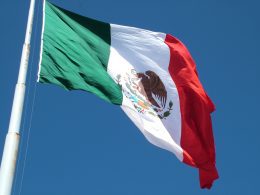Economic uncertainty refers to unpredictable shifts in financial stability, often caused by unforeseen global events, policy changes, or geopolitical conflicts. These uncertainties can lead to volatility in global markets, impacting both developed and emerging economies. With global markets interconnected more than ever, economic uncertainty in one region can ripple across borders, affecting markets worldwide. This article explores the various aspects of economic uncertainty, its causes, and its impacts on global markets, along with an analysis of its implications for different sectors.
Causes of Economic Uncertainty
Economic uncertainty can arise from a variety of sources, each affecting the global markets differently:
- Geopolitical Tensions
Conflicts, such as trade wars or diplomatic disputes between countries, create uncertainty about trade policies, tariffs, and access to markets. The U.S.-China trade tensions, for instance, created massive uncertainty for global markets, affecting industries dependent on supply chains in these countries. - Natural Disasters and Pandemics
Events like the COVID-19 pandemic or large-scale natural disasters lead to sudden economic halts, disrupting businesses, labor markets, and consumer spending. The COVID-19 pandemic is a prime example, as it led to massive lockdowns, restricted travel, and halted production worldwide, leading to unprecedented levels of uncertainty. - Policy and Regulatory Changes
Economic policies—such as changes in interest rates, tax reforms, and fiscal policies—affect both local and global markets. For example, when the Federal Reserve in the U.S. raises interest rates, it can lead to capital outflows from emerging markets, impacting global financial stability. - Commodity Price Fluctuations
Volatile prices of essential commodities like oil, metals, and agricultural products can create uncertainty. High oil prices, for instance, can lead to inflation, which impacts consumer spending, corporate profitability, and market sentiment across the globe. - Technological Changes
Rapid advancements in technology can disrupt existing markets and economic structures, contributing to uncertainty. Innovations like automation and artificial intelligence can impact employment patterns and lead to uncertainty in labor markets, impacting income levels and economic stability.
How Economic Uncertainty Affects Global Markets
Economic uncertainty impacts various facets of global markets, from stock markets and currencies to trade volumes and investment flows.
1. Stock Market Volatility
During times of uncertainty, stock markets tend to become highly volatile. Investors, driven by fear and speculation, may sell off assets to mitigate risks, leading to sharp declines in stock prices. This volatility can erode investor confidence, leading to lower valuations and making it challenging for companies to raise capital.
2. Currency Fluctuations
Economic uncertainty often leads to fluctuations in currency values. For example, during uncertain times, investors tend to move their assets into stable currencies like the U.S. dollar or Japanese yen, which can cause devaluation in other currencies. Currency instability impacts export and import markets, especially in emerging economies that rely heavily on foreign investment.
3. Impact on Trade and Investment
Global trade and investment are sensitive to uncertainty. Companies become hesitant to invest or expand due to unpredictable returns, and nations may introduce protectionist policies to safeguard domestic industries. This reduces trade volumes, affecting global supply chains and limiting access to resources and technology.
4. Reduced Consumer and Business Confidence
When economic conditions are uncertain, consumer confidence declines, leading to reduced spending. This, in turn, affects business revenues, forcing companies to cut costs or delay expansion plans. For example, during the 2008 financial crisis, global markets saw a sharp decrease in consumer spending, affecting various sectors.
5. Commodity Price Instability
Global markets for commodities like oil, gold, and agricultural products are also impacted by economic uncertainty. Prices may fluctuate due to changing demand, as investors may either flock to safe-haven assets (like gold) or pull out of volatile markets, leading to significant price shifts.
Economic Uncertainty’s Effects on Different Regions
The impact of economic uncertainty varies significantly across different regions, depending on their economic structure, dependence on trade, and financial health.
Developed Economies
Developed economies, such as the U.S., U.K., and Germany, often have greater resilience to economic uncertainty due to their diversified economies and strong financial systems. However, even these economies face challenges like market volatility and reduced investments during uncertain times, which can lead to slower growth rates.
Emerging Markets
Emerging markets, like India, Brazil, and South Africa, are more vulnerable to economic uncertainty. They often rely on foreign investments and exports, making them sensitive to shifts in global investor confidence and trade policies. Economic instability in developed markets can lead to capital flight from these regions, weakening their currencies and economies.
Globalized Regions and Economies
Highly globalized regions, like the European Union, are particularly affected by economic uncertainty due to their reliance on free trade and cross-border investments. Economic disruptions in one member country can have significant consequences for the entire bloc, leading to challenges in maintaining stability and growth.
Coping Mechanisms in Global Markets During Economic Uncertainty

To navigate through economic uncertainty, governments and businesses adopt various coping mechanisms:
- Monetary Policy Adjustments
Central banks may lower interest rates or provide liquidity to markets to stabilize the economy. For example, during the 2020 COVID-19 crisis, the Federal Reserve reduced interest rates to nearly zero to encourage borrowing and stimulate economic activity. - Diversification of Investments
Investors often diversify their portfolios to minimize risks. By holding a variety of assets, such as bonds, real estate, and foreign equities, they can protect themselves against significant losses during uncertain times. - Risk Management Strategies in Corporations
Corporations may delay investments, hold off on expansion, or reduce costs during uncertain periods. These strategies help maintain financial stability and reduce exposure to potential losses. - Government Stimulus Packages
During severe economic crises, governments may introduce stimulus packages to support businesses and consumers. The U.S. CARES Act, introduced during the COVID-19 pandemic, is an example of how governments can boost economic activity in uncertain times. - Hedging Against Currency Risks
For companies heavily involved in international trade, hedging strategies can reduce the impact of currency fluctuations. Currency hedging allows businesses to lock in exchange rates, minimizing the risks associated with currency devaluation or appreciation.
Comparative Analysis of Economic Uncertainty in Different Market Phases
| Market Phase | Characteristics | Impact of Economic Uncertainty |
|---|---|---|
| Expansion (Growth) | High GDP growth, low unemployment, increased consumer spending | Uncertainty may slightly affect growth but often does not lead to major downturns. |
| Recession (Contraction) | Declining GDP, high unemployment, reduced consumer spending | Uncertainty intensifies, leading to market volatility and lower investor confidence. |
| Recovery | Gradual growth in GDP and employment after a recession | Uncertainty remains but gradually decreases as economic indicators improve. |
| Stagnation | Low or no economic growth, potential for inflation | Uncertainty can deepen stagnation, leading to prolonged slow growth or a recession. |
Analysis Table of Key Factors in Economic Uncertainty’s Impact on Global Markets
| Factor | Explanation | Example |
|---|---|---|
| Interest Rate Changes | Changes by central banks affect borrowing costs and investment. | U.S. Federal Reserve interest rate cuts during 2020. |
| Geopolitical Events | Conflicts and trade wars impact global trade and investor sentiment. | U.S.-China trade war. |
| Natural Disasters/Pandemics | Disruptions to production and demand due to unexpected events. | COVID-19 pandemic’s global economic impact. |
| Currency Fluctuations | Value changes in currency affect export-import businesses. | Depreciation of emerging market currencies during crises. |
| Commodity Price Changes | Volatility in commodity prices affects industries reliant on raw materials. | Oil price drop in 2020 due to decreased demand during COVID-19. |
Conclusion
Economic uncertainty has a profound impact on global markets, affecting everything from stock market stability to international trade and investment flows. While developed economies may have some resilience, emerging markets often face severe challenges due to their dependency on foreign investments and exports. By adopting risk management strategies, diversification, and governmental interventions, global markets can mitigate some of the adverse effects of economic uncertainty. However, as global interconnectivity increases, the impact of economic uncertainties will likely continue to grow, requiring robust mechanisms for maintaining stability.











